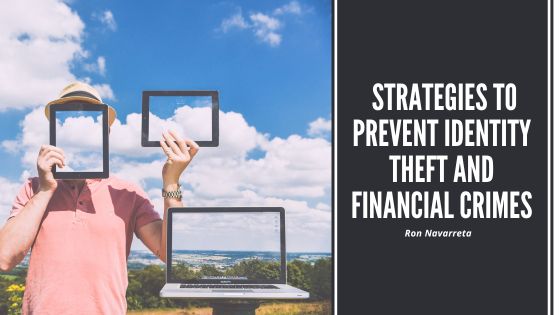In an increasingly digital world, the threat of identity theft and financial crimes has become more prevalent than ever. Cybercriminals are constantly evolving tactics, making it crucial for individuals to stay vigilant and proactive in protecting their personal information and financial assets. There are effective strategies to prevent identity theft and financial crimes, helping you safeguard your digital and financial well-being.
Secure Your Personal Information
One of the fundamental steps to prevent identity theft is safeguarding your personal information. This includes your Social Security number, birth date, and financial account details. Here are some practical tips:
- Strong Passwords: Use strong, unique passwords for all your online accounts. Avoid using easily guessable information, like your birthdate or common words. Consider using a reputable password manager to generate and store complex passwords.
- Two-Factor Authentication (2FA): Enable 2FA wherever possible. This adds an extra layer of security by requiring a second verification step, typically involving a text message or app notification.
- Be Wary of Phishing: Avoid clicking suspicious links or downloading attachments from unknown sources. Cybercriminals often use email and social engineering to trick you into revealing personal information.
Monitor Your Financial Statements
Regularly monitoring your financial statements is essential in detecting unauthorized or suspicious activities early on. Set aside time to review your bank and credit card statements and credit reports. Look for any unfamiliar transactions and discrepancies, which could be early signs of identity theft.
Freeze Your Credit
A credit freeze is a proactive step to prevent unauthorized access to your credit reports. When your credit is frozen, lenders and creditors cannot access your credit history, making it difficult for identity thieves to open new accounts in your name. Remember to unfreeze your credit when applying for new loans or credit cards.
Shred Sensitive Documents
Pay attention to the physical aspects of identity theft prevention. Shred documents containing personal information before disposing of them. This includes old bank statements, medical bills, and credit card offers.
Use Secure Wi-Fi and Connections
When connecting to the internet, use secure, encrypted connections. Avoid using public Wi-Fi networks for sensitive activities like online banking. If you must use public Wi-Fi, consider using a virtual private network (VPN) to encrypt your connection.
Protect Your Social Media Presence
Be mindful of the information you share on social media. Cybercriminals can use personal information from your profiles to impersonate you or answer security questions to access your accounts. Adjust your privacy settings to limit who can see your information.
Educate Yourself
Staying informed about current cybersecurity threats is a crucial part of prevention. Regularly educate yourself about the latest scams and dangers in the digital world. Government agencies, financial institutions, and cybersecurity organizations provide valuable resources and updates on emerging threats.
Be Cautious of Unsolicited Requests
Be cautious of unsolicited requests for personal or financial information, whether a phone call, email, or text message. Legitimate organizations won’t ask you for sensitive information through these channels. If in doubt, contact the organization directly using their official contact information.
Safeguard Your Devices
Keep your devices updated with the latest security patches and use reputable antivirus software. Enable device encryption and consider remote-wiping capabilities if your device is lost or stolen.
Prepare for Identity Theft
Despite your best efforts, identity theft can still happen. Be prepared by knowing how to respond. Contact the appropriate authorities, report the theft to your financial institutions, and consider an identity theft protection service for added security.
Conclusion
Preventing identity theft and financial crimes requires a combination of vigilance, education, and proactive measures. By securing your personal information, staying informed about threats, and regularly monitoring your financial accounts, you can significantly reduce the risk of falling victim to identity theft. Remember, investing time and effort into prevention is always better than dealing with the potentially devastating consequences of financial crimes after the fact. Stay vigilant, stay informed, and stay safe in the digital age.

